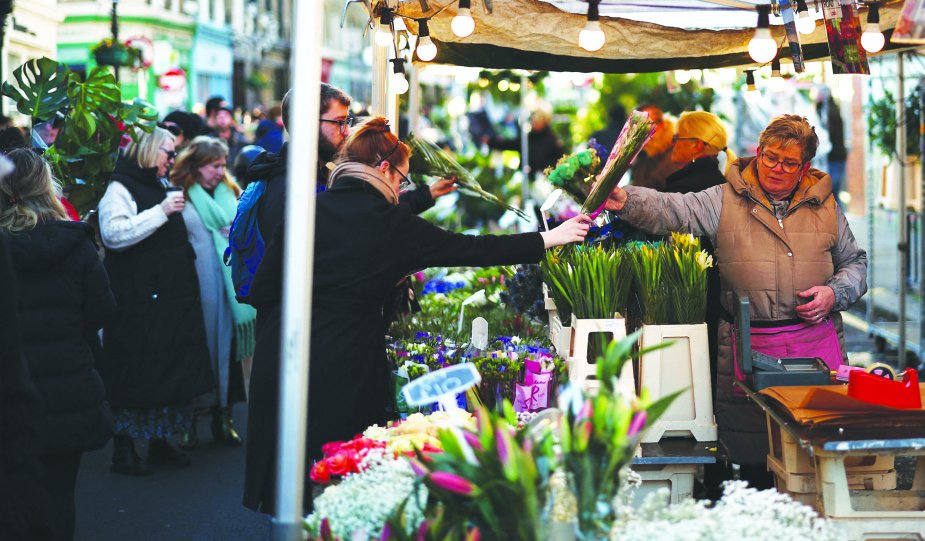Dutch flower traders worry about UK border checks
By JONATHAN POWELL in London | China Daily Global | Updated: 2024-01-08 09:16

The Dutch flower-growing industry has expressed "significant concerns" about its readiness for the United Kingdom's scheduled introduction of new post-Brexit border checks and has called for a delay until 2025.
The UK government plans to implement new paperwork requirements for European businesses exporting animal and plant products to Britain, beginning in late January, with further physical inspections due to start in April.
Exporters, including the Dutch Association of Wholesalers in Floricultural Products, or VGB, have expressed concerns about their lack of preparedness for these rule changes, fearing potential losses and damages due to customs delays.
In a letter to the UK government, the VGB highlighted that new requirements will be implemented during a crucial period for its sector, with significant trading volumes driven by Valentine's Day, Easter, and Mothering Sunday.
The letter states that the stricter physical checks due in April may cause delays in product delivery and could potentially result in significant damage to plants during border inspections.
In the letter seen by The Guardian newspaper, the VGB director Matthijs Mesken said: "We wish to express our concern regarding the impending introduction of phytosanitary certificates on medium-risk products, scheduled for 31 January 2024.
"This timing coincides with the absolute peak of the seasons, which poses challenges for our industry."
The VGB suggested Britain had "Europe's most efficient border" and recommended that the UK government postpone physical checks on plant imports until at least September 2025.
According to the chair of the UK Horticultural Trades Association, James Barnes, Brexit has already caused delays to imports, and he expressed concerns that the situation could worsen under the new regime. "We think that the new border is a disaster waiting to happen," he said.
Concerns have also arisen regarding the potential increase in food and plant prices due to importers being unable to absorb the costs associated with the new checks, said The Guardian.
According to the government, the border strategy aims to safeguard the UK against biosecurity threats and that the new controls would leverage "Brexit freedoms" to streamline import regulations for goods from around the world.
In a statement, the Department for Environment, Food and Rural Affairs said: "The controls the border target operating model (BTOM) introduces are vital for keeping the UK safe by protecting our food supply chains and agricultural sector from disease outbreaks that would cause significant economic harm. The BTOM makes use of technology and data to make it simple for businesses to trade, limiting administrative burdens and keeping down costs.
"We are working closely with stakeholders across all affected sectors within the UK, across the EU and with trading partners around the world to support readiness for the BTOM."
























